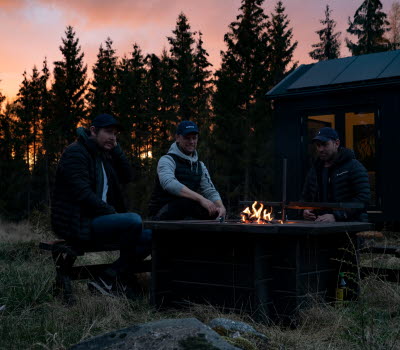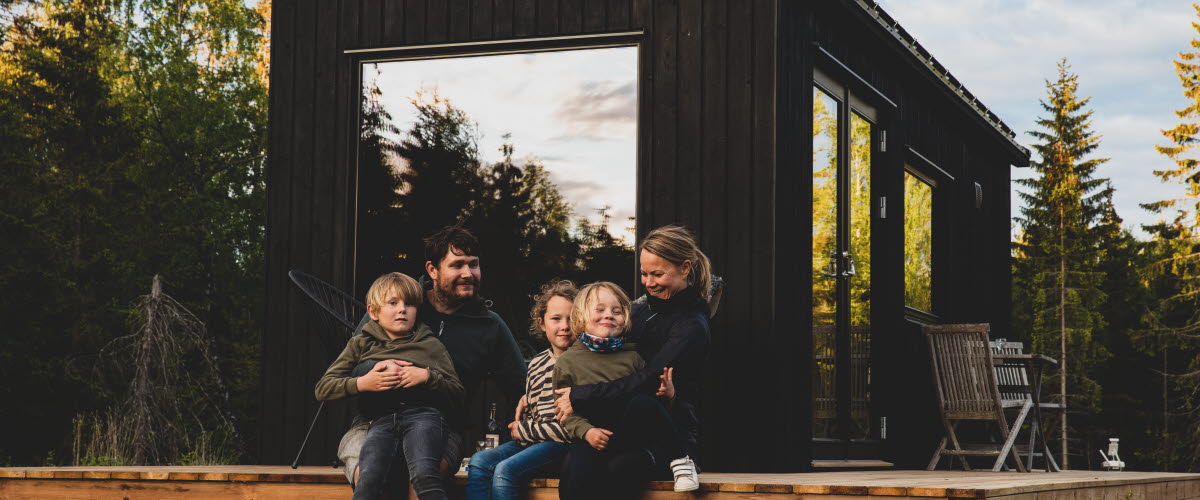Living off-grid
Minimal environmental impact, maximum relaxation!
“Detached, private and sustainable.” That’s how Jesper describes a night in one of the self-sufficient tiny houses at INFOREST, just outside Hjo. But what does living off-grid mean? Put simply, it’s about disconnecting from the power grid or water supply and generating your own energy. It’s a way of contributing to the sustainable consumption of natural resources for future generations. That’s why the three tiny houses here are fitted with solar charged batteries, as well as built-in water tanks and water meters so that guests can keep a track of how much water they’re using. You’re also given tips on saving energy. For example, you could charge your phone during the day when the sun is shining, and the house is producing surplus energy, instead of using energy stored in the house’s batteries at night.
Personal and social well-being
Saving energy and safeguarding our natural resources are important, but they are not the only reasons to live off-grid in the forest. For Jesper and Petra, the couple who founded INFOREST, our personal and social well-being is just as important. “We want our guests to feel good. That’s what the forest can offer you, time to disconnect and the chance to be together without everyday distractions. Simply being a little more present.” Privacy and solitude are also important matters. Thus, everything you need is there for you, so you don’t need to leave the forest during your visit. Just around the corner you can set out on long hiking trails, pick mushrooms and berries when they’re in season, or just sit back and relax. You can order food for your visit or bring your own to cook over the open fire outside your house. Guests are encouraged to stay at least two nights so that they really have time to relax and enjoy the experience. “It’s a great alternative to other ways of living,” the couple thinks, especially as they themselves would like to spend more time in the houses together with their children Esther, Ebbe and Vilgot, the namesakes of the tiny houses.
Photographer: Per Olsson
Nature in focus
The houses are hand-made with natural materials sourced from a small local company in the neighbouring town of Tidaholm. The cabins large windows allow you to look out over the beautiful forest around you. “Nature really is the central focus when visiting us. So, we’ve opted for a minimal Scandinavian style using lots of wood elements, coupled with balanced and harmonious colours that help you disconnect.” Here you can overnight completely secluded, however in a very modern and comfortable fashion. In short, Esther, Ebbe and Vilgot offer you an overnight stay which leaves a minimal environmental impact, but give you the maximal relaxation, with the forest as your only neighbour.
Photographer: Inforest










